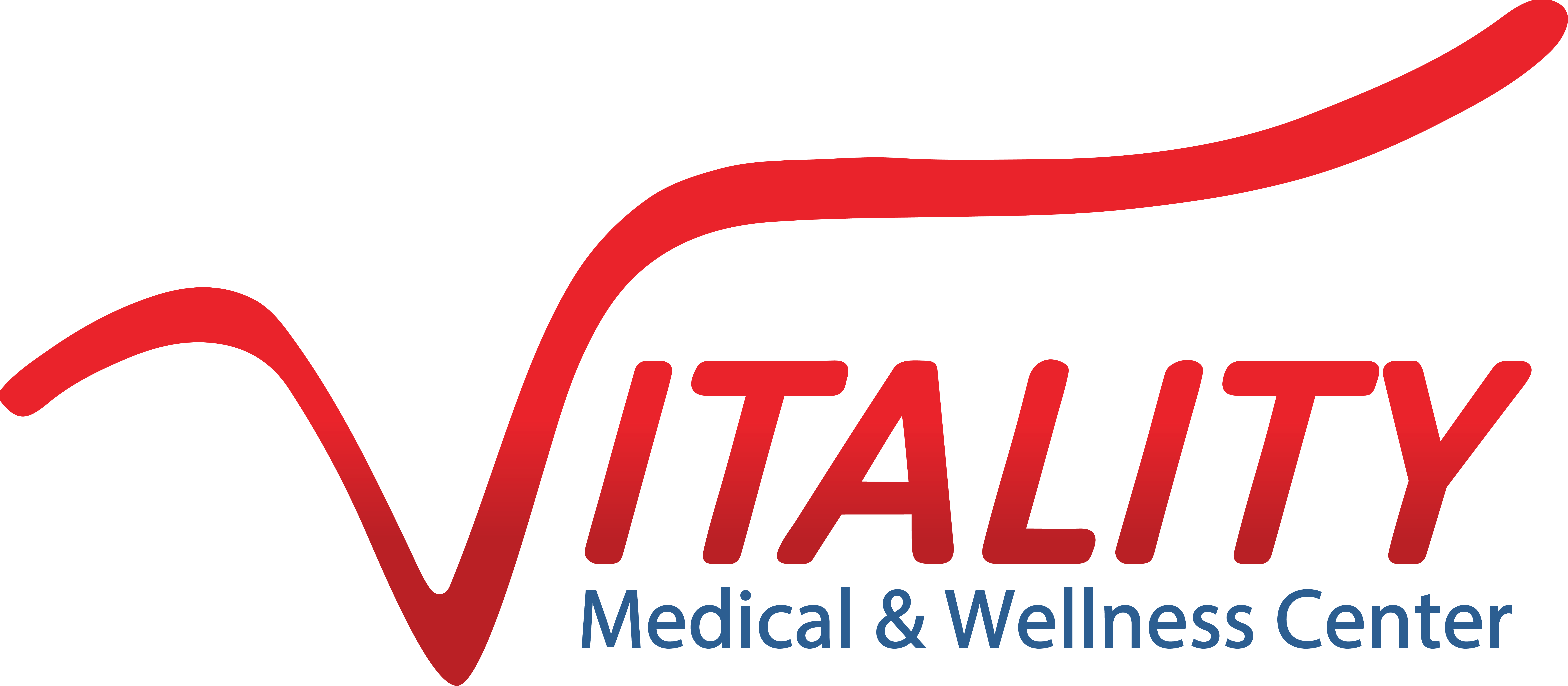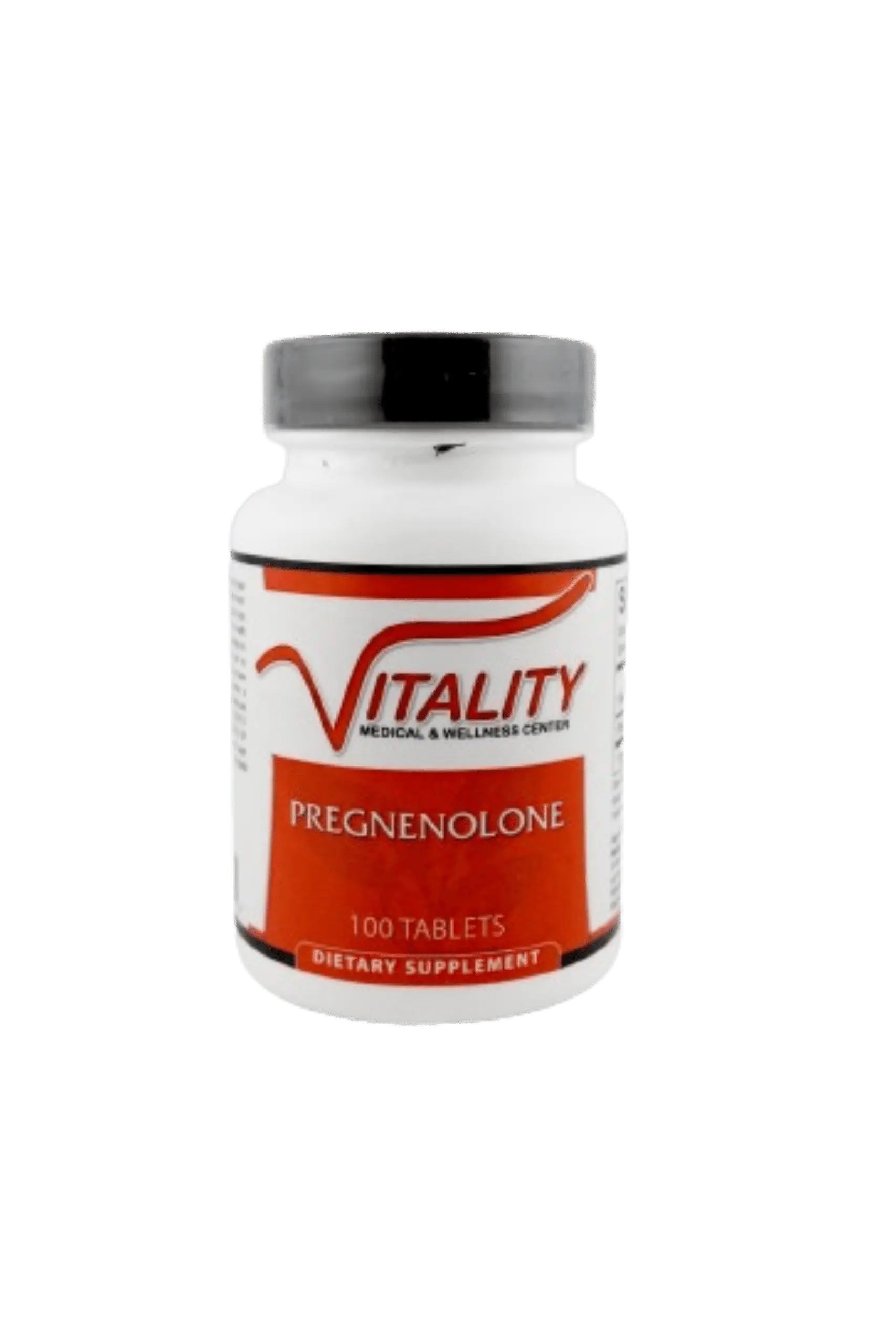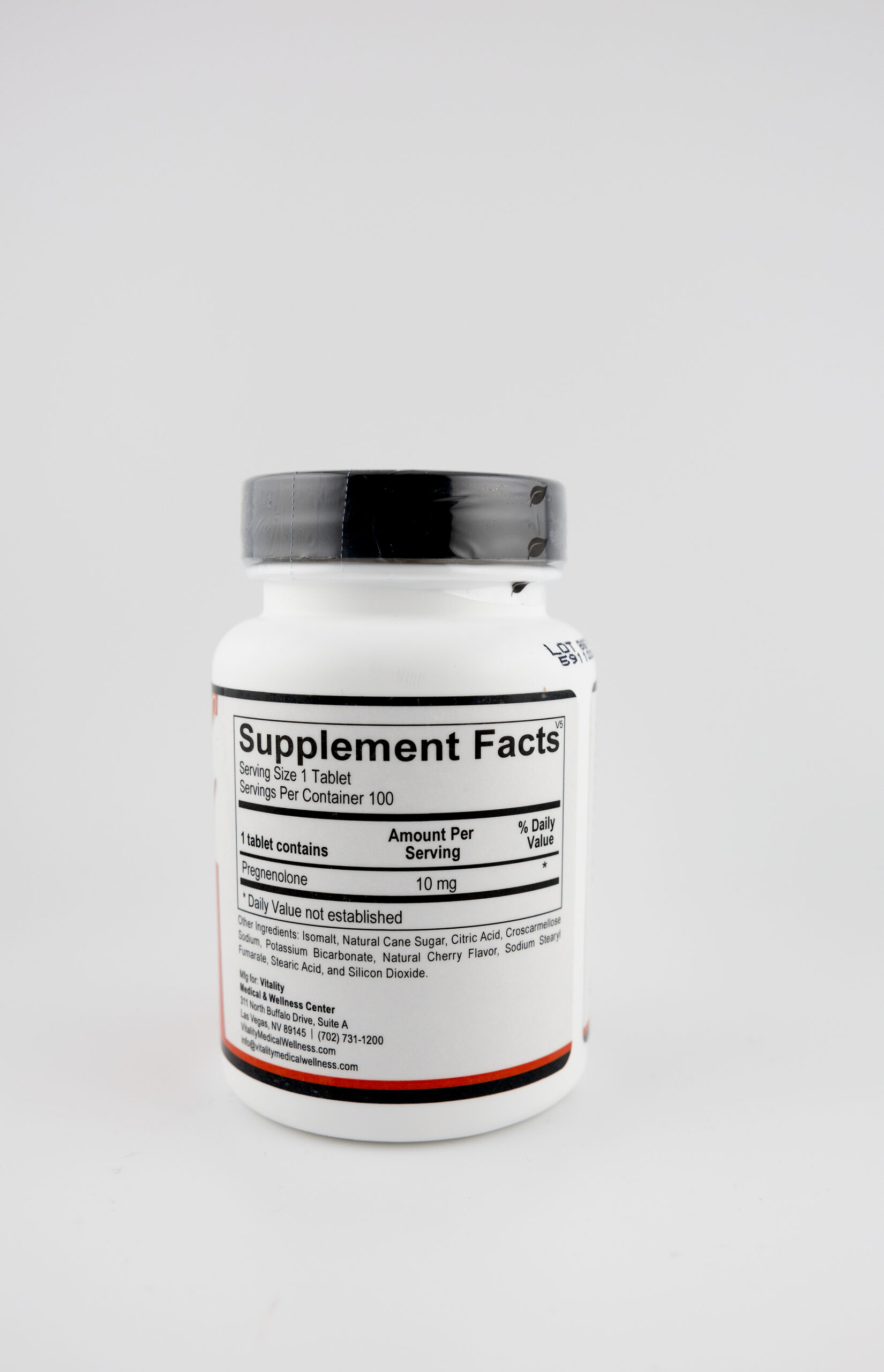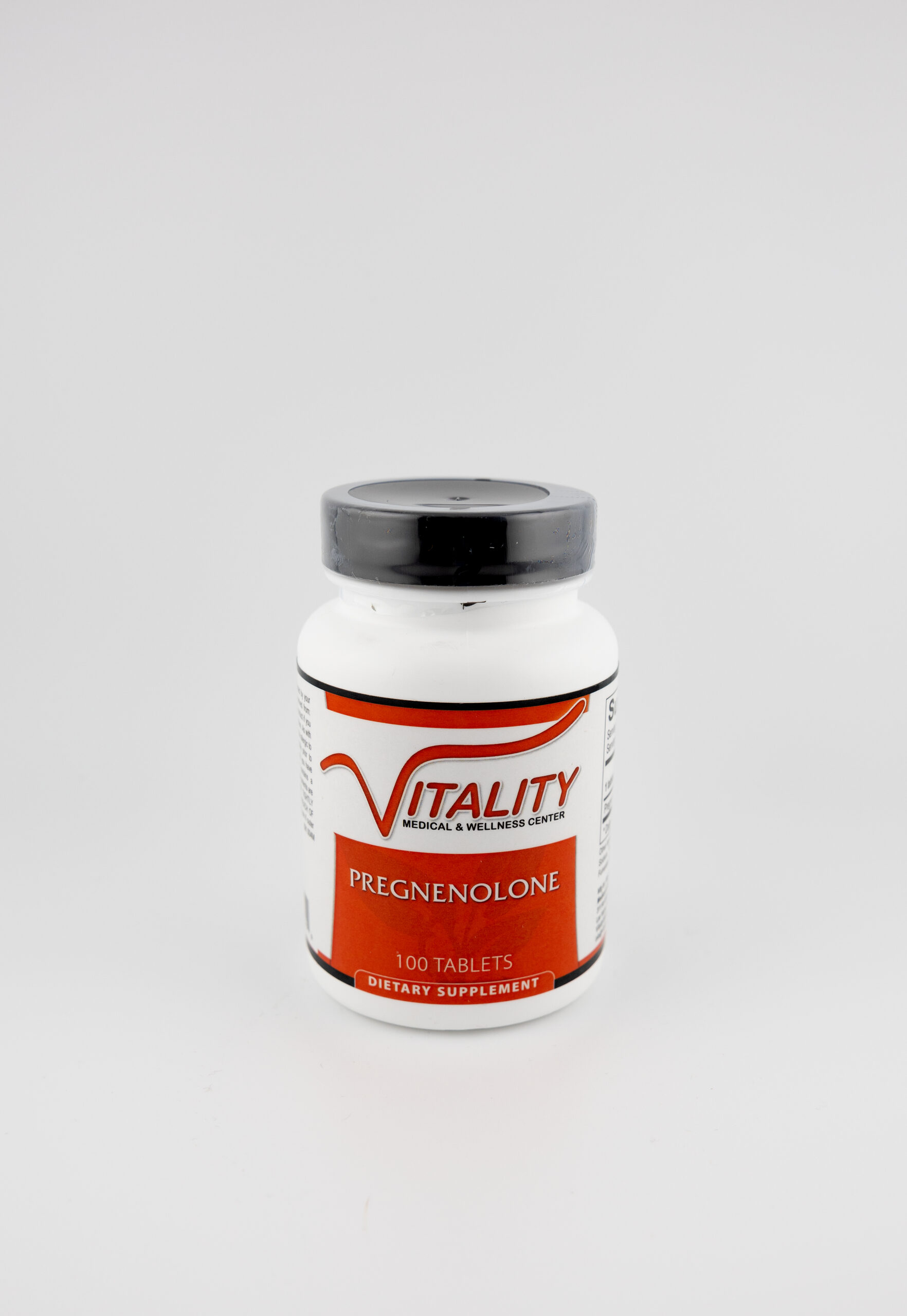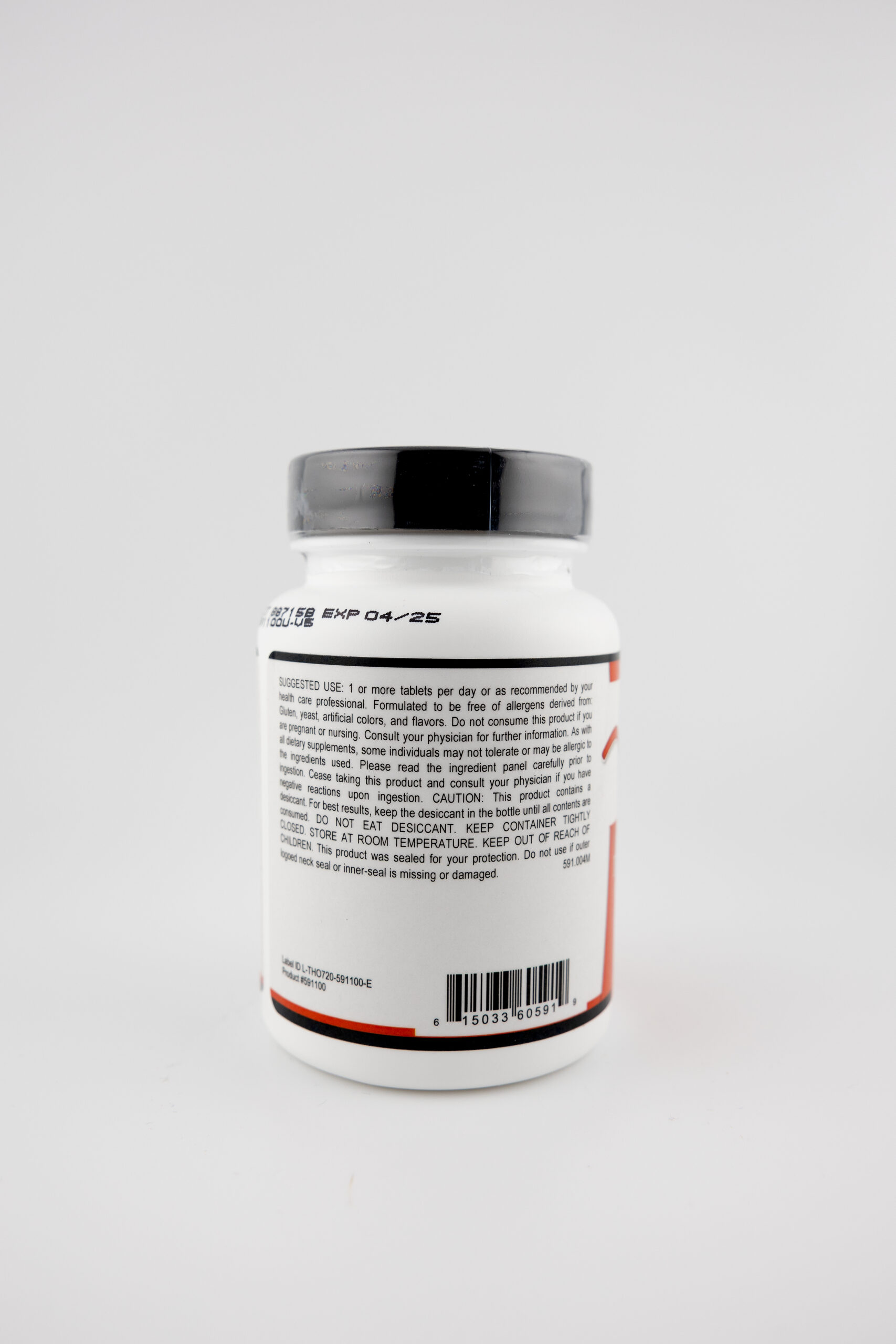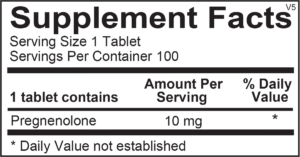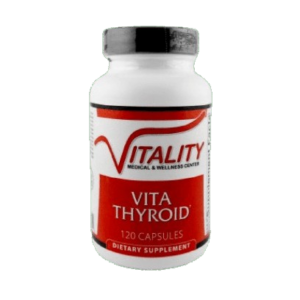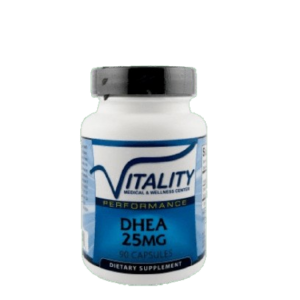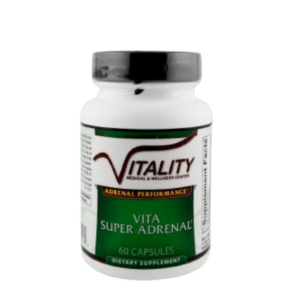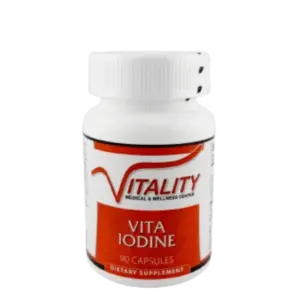Description
Clinical Applications
- Promotes Normal Hormonal Balance
- Helps Maintain Healthy Memory and Cognitive Function
- Supports Mood Regulation
- Supports the Stress Response
- System by Acting as Hormonal Precursor
Supports Learning and Memory Pregnenolone is a pro-hormone that is synthesized in the brain and adrenals, but also in the liver, skin, brain, testicles, ovaries and retina. As a biochemical precursor to dehydroepiandrosterone (DHEA) and progesterone, pregnenolone helps to keep a normal balance between these hormones in the body and as a result, helps to modulate the cortisol-driven stress response system, support nerve cell growth and modulate mood.
Pregnenolone plays a key role in hormonal balance as a key precursor to cortisol, DHEA and progesterone, and helps to maintain balance in the body’s stress response system. In addition, pregnenolone has been shown to support a balanced mood and promote cognitive health by modulating the transmission of messages between neurons, influencing learning and memory processes. Since there is strong evidence that pregnenolone levels diminish with advancing age, restoring these levels may also help support overall brain function and sense of well-being. Each serving includes 10 mg of pregnenolone in a scored, quick-dissolve tablet, allowing for incremental dosing as needed.
Suggested Use: 1 or more tablets per day or as recommended by your health care professional.
Benefits
Deficiency
Pregnenolone levels naturally peak during youth and begin a long, slow decline with age. Since pregnenolone is the parent compound of other vital neurosteroids such as DHEA, declining levels of pregnenolone could leave brain cells increasingly vulnerable to overstimulation by neurotransmitters like glutamate, thereby affecting mood and cognition.
Mood Regulation
Research has shown pregnenolone to be beneficial for mood support and balance. Specifically, pregnenolone is reported to have a positive effect on neuronal excitability and synaptic plasticity, and has many other functions associated with mood regulation, neuroprotection from free radicals, balancing the stress response and improving cognitive performance.
Learning and Memory
Animal studies have demonstrated that both pregnenolone and DHEA support learning and healthy memory among the aging, initiated by balancing the activity of N-methyl-D-aspartate (NMDA) and gamma aminobutyric acid (GABA-A) receptors. Infusions of pregnenolone have been found to reverse memory deficits in animals, and the data suggests pregnenolone increases neuron regeneration and positively influences cognitive processes in senescent subjects, by increasing acetylcholine levels improving neurotransmission. Additional studies have shown pregnenolone to enhance neuritic outgrowth and growth of myelin, impart neuroprotective effects against free radicals that increase neurogenesis, promote healthy levels of inflammation, modulate the stress response system and increase GABA-A receptor responses. Pregnenolone administration has also been shown to positively modulate NMDA receptors, offering additional benefits for mental health.
